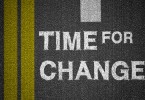Bobby Fisher, the great chess champion, once said, “Winning in this game is all a matter of understanding how to capitalize on the strengths of each piece and timing their moves just right.”
A 2015 Gallup survey reported that 50% of the time an employee quits it’s the boss not the organization. I’m guessing in the last few years that number has grown. Maybe you already knew this? Maybe you haven’t considered the full gravity of that statistic. The investment in a new hire is equal to the compensation of that position. When you have a stream of people through one desk, the numbers add up. In a time when the focus is on efficiency, effectiveness, and improving the bottom line, recruiting, hiring, and retaining great people is an investment with a great return.
Think about how much effort and resource you invest in creating great leaders in your firm. If 50% of the time you lose somebody it’s related to their supervisor (when they are honest in their exit interview. Don’t be fooled by the “I’m relocating” statement by the person who wouldn’t have been looking for that new job had the new boss not been a nightmare.) The investment in leadership development is also a glimpse into your culture. What’s the relationship?
I think it’s similar to the relationship between chess and checkers. Last week I was talking with an Executive Committee member of a mid-sized firm. We were discussing politics, a common concern in our country right now. He was pointing out that our country’s leaders are playing checkers in a world that is playing chess. I turned the question back on him, “where is your firm playing checkers when it would benefit from playing chess?” Places you may be playing checkers:
- Separating partner compensation from behavior (client generation, professionalism, self-awareness);
- Reacting to the recent crisis (exiting practice group, merging clients);
- Focus on replacing people;
In checkers, all the game pieces move in the same way. In chess, you move each piece differently based on its ability. When the focus is narrow, and near-term, checkers is your game. It’s fast-paced, exciting, and after a while can feel repetitive. I marvel at how two games played on the exact same board can be so vastly different!
Great leaders play chess. They connect with individuals based on unique characteristics – personality, strengths, and communication styles – moving the pieces differently.
Firm leaders that are playing chess:
- Consider partner compensation in full analysis of contribution, whether formulaic or not;
- Review any crisis for the long term possibilities, and build toward them;
Hire people for growth, invest in positions that have advancement, focused on responsibilities, not titles.
Employees will naturally follow in the footsteps of their leaders. Leaders set the expectations, and I encourage you to be mindful of what expectation you are setting.
Bobby Fisher, the great chess champion, once said, “Winning in this game is all a matter of understanding how to capitalize on the strengths of each piece and timing their moves just right.”
When you set expectations in your firm, are you capitalizing on the strengths of each person? When you build a new team (client service, practice group, administrative, etc.) are you intentional about the people involved? Playing checkers means putting the faces of the folks that pop in your mind on a team. Moving chess pieces means considering what each piece has available, and how they can play together to maximize results.
Practice is in the center of learning, not the end. When you are building culture, consider the number of games a chess master plays before winning, let along mastering. One day at a time, one move at a time. Develop your leaders, be intentional in your moves, and enjoy the challenge.







